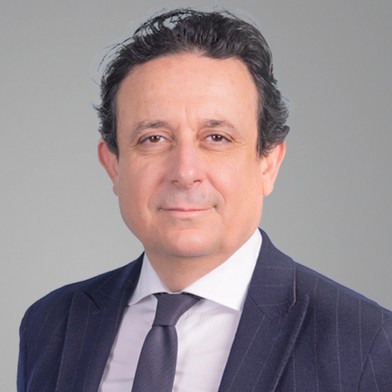Investment Strategies
A Cautious Approach Dictates Direction For UBP

This publication caught up with the Swiss private bank, Union Bancaire Privée, to hear about its asset allocation and approach to risk after the turbulence of the spring.
Trying to find a turning point in markets is hard, especially in
volatile times, Geneva-headquartered Union
Bancaire Privée says, so it is taking a cautious
investment stance by focusing on diversfication and risk
management.
From May 2023 through to February this year, UBP had a
directional approach. And then Donald Trump's “Liberation
Day” US tariff announcement moment on 2 April changed
everything.
Among its changes, the Swiss bank is reconsidering investment
opportunities in Europe but it is not rushing into it.
Wealth managers are issuing mid-year strategy and asset
allocation views. A common theme so far has been greater caution
on US equities and the dollar, a shift to Europe and some
emerging markets, and select moves into bond markets. In some
cases, there appears even more appetite for gold – a classic
safe haven move.
In mid-April, UBP decided to change its cautious stance to a more
directional strategy with upside potential and protection against
tail risk. In other words, the tactical overlay allocation was
left to long-only and tail-risk protection (guarding against the
risk of a portfolio having substantial losses due to rare,
extreme events with low probability but high potential
impact.)
“It was a risk management overlay to significantly shift
allocation for something more cautious,” Michaël Lok (main
picture), group chief investment officer and co-CEO of asset
management, UBP, told WealthBriefing in an interview at
its Rue du Rhône, Geneva HQ.
Casting back to May 2023, Lok said: “We moved towards riskier
assets. We decided to become more directional in our equity
allocation, significantly increasing our exposure to this asset
class. We decided to maintain low-duration fixed-income position
and held a certain portion in hedge funds and cash. We also
started building a substantial position in gold.”
In 2025, the firm realised that the decrease in global inflation
would be less intense than before, but manageable. Gold, as a
portfolio share, has gone up to 10 per cent, while the share of
hedge funds has increased to 15 per cent.
Trump impact
The election in November last year of Trump, and the way he
permitted business tycoon Elon Musk to pursue his DOGE
agenda in slashing certain government functions, made UBP more
cautious.
Market timing approaches have been “impossible,” Lok said. UBP
has primarily used futures and options in the derivatives market
to adjust risk exposures and make tactical shifts. “We have had
to spend money to do that,” he said. UBP explains its reasoning
to clients, saying it acts in this way to control exposure and
risks closely.
“We want to avoid accidents for our clients,” Lok said. “We have
created a cash reserve…to be able to implement rapid changes to
our asset allocation.”
Lok said that UBP’s decisions meant that it was well positioned
when Trump’s administration announced a 90-day pause on tariffs,
prompting a rebound in global equities.
About one week after the [tariff pause] announcement, UBP decided
to abandon its tail-risk hedging strategy to maintain a long-only
position.
Slower but no recession
Looking ahead, Lok thinks there will be an important slowdown but
not a recession [in the US and wider world] from the
uncertainties and changes to the Trump policies.
“We must be focused on earnings guidance, and interest rates.
There are some tensions. We remain vigilant and are fully
invested,” Lok said.
On other areas, Lok said UBP remains positive on the medium- and
long-term case for technology.
While diplomatic in his language, Lok does not pull back from
concerns about the direction of US economic and foreign policy.
Trump’s policies have damaged America’s reputation in terms of
both stability and its status as a haven for investment. As a
result, investors are considering diversifying their portfolios
across different geographies; therefore they are looking for
attractive corporate opportunities elsewhere, including in
Europe, Lok said.
“We were not negative on Europe but not pushing it. Now, we are
recalibrating our strategy and reconsidering Europe’s position
within it,” he said.
In the past, the US market was so appealing and straightforward
for investors that Europe could be somewhat overlooked, he
said.